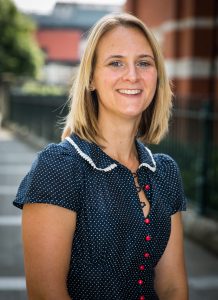 |
|
Join us for the next in the series of our Infectious Diseases Special Interest Groups at this webinar; “Straight to the source – Managing bone infections through non-traditional routes”.
Bone infections are extremely challenging to treat and patients often require weeks of intravenous antibiotics, which often cause side effects and impact on quality of life. Antimicrobial resistant infections are also becoming increasingly common, which can make these challenging infections even more difficult to treat safely and effectively. This session will hear from clinical and scientific experts on difficult to treat bone infections and how antimicrobial resistance impacts on this, and current and future alternatives to managing these infections.
This event is in partnership with De Montfort University and led by Dr Katie Laird, Professor of Microbiology and also Head of the Infectious Disease Research Group at De Montfort University.
Presentations confirmed so far are:
– Antimicrobial Resistance, The Silent Pandemic: Academia’s role in managing infections correctly
– Managing infection correctly: more than prescribing antibiotics
– Biocomposites: Bringing Calcium to life
This free-to-attend event is held as part of the SoLSTICE programme – a project part-funded by the European Regional Development Fund, click here to be re-directed to further information about the project. This event is classed as State Aid to participating businesses, the value of which is £190, but is delivered completely free of charge to participants.
Please note: whilst this event is held as part of the SoLSTICE programme, attendance is not restricted to companies in the Leicester/Leicestershire area and is open to all.
DURATION: 1.5 hours

Dr Katie Laird, Professor of Microbiology and Head of the Infectious Disease Research Group at Leicester School of Pharmacy, De Montfort University
Katie has a BSc (Hons) in Biology and obtained a PhD in applied microbiology in 2008. During her PhD she developed and patented an essential oil based antimicrobial vapour, whilst her postdoctoral work included the assessment of natural antimicrobials efficacy against post-harvest pathogens.
Her research interests include the use of natural products as antimicrobials in particular to combat hospital acquired infections and biofilms. Her other area of research includes the assessment of healthcare laundry as a potential route of cross contamination in the clinical arena.
 ~
~
Dr Ryan Hamilton, Senior Lecturer in Pharmacy, De Monfort University
Ryan is a clinical academic pharmacist spending time as a senior lecturer at De Montfort University School of Pharmacy and as a clinical pharmacist at Kettering General Hospital NHS Foundation Trust.
In academia, he teaches specialist and generalist pharmacy practice to undergraduate pharmacy students and is clinical lead for the Antimicrobial Resistant and Stewardship module of the postgraduate diploma in clinical pharmacy. He is an active researcher within the Infectious Diseases Research Group with projects spanning all areas of practice from bench to bedside.
At Kettering General Hospital he is one of the lead pharmacists for microbiology & infectious diseases and chairs the Northamptonshire Antimicrobial Medicines Optimisation Group. He has specialised in antimicrobials since 2015 with expertise in managing patients with complex and difficult to treat infections, outpatient parenteral antimicrobial therapy, guideline and policy development, and stewardship interventions. Outside of these roles, Ryan has developed award-winning outreach and engagement programmes relating to hygiene, infection, and antimicrobial resistance.

Dr Michael Pierides – Consultant in Diabetes & Endocrinology at Kettering General Hospital NHS Foundation Trust
Michael is a Consultant in Diabetes & Endocrinolog, having trained in the East and West Midlands. He has an interest in education and completed a MSc in Medical Education at Warwick Medical School. He has been educational lead for the department since 2013, as well as a faculty member of the international surgical training course: ESMSC (since 2015). Beyond traditional delivery of education he is also involved in developing high fidelity simulation training.
His main role centres around diabetic foot medicine. He is the regional lead for the multidisciplinary diabetic foot service in Northamptonshire. From the beginning he was interested in diabetic foot disease and started a multidisciplinary foot round with a vascular consultant and specialist podiatrist, in 2015. Since then the service has progressed to be a full Multidisciplinary Countywide service for 2 hospitals and the county of Northamptonshire, with a podiatry delivered service feeding in to the diabetic foot service, Virtual ‘Rapid access clinics’ and specialist high risk foot clinics with Orthopaedics, all supported by Specialist Pharmacists, specialist nurses, Radiologists and Microbiology. “This is a true Team Effort and I am proud to be part of it.”

Phillip Laycock, Technical Research Director, Biocomposites Ltd
Phillip is the Technical Research Director at Biocomposites, an international medical device company that engineers, manufactures and markets world leading products for use in infection management in bone and soft tissue. Based in Keele, UK, it has global operations across Europe, USA, Canada, China and India. Biocomposites is a world leader in the development of innovative calcium compounds for surgical use. Its products regenerate bone and target infection risks across a variety of specialties, including musculoskeletal infection, orthopaedics, trauma, spine, foot and ankle, podiatry and sports injuries. Biocomposites products are now used in over 120,000 procedures per annum and sold in more than 40 countries around the world.


